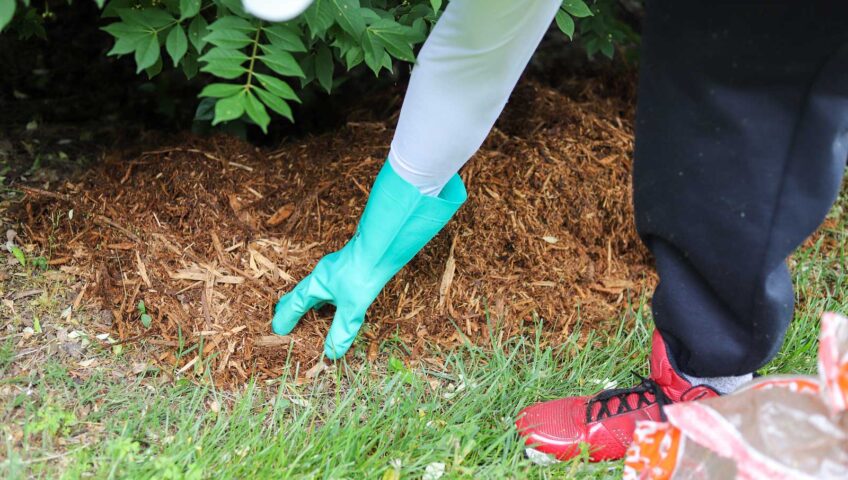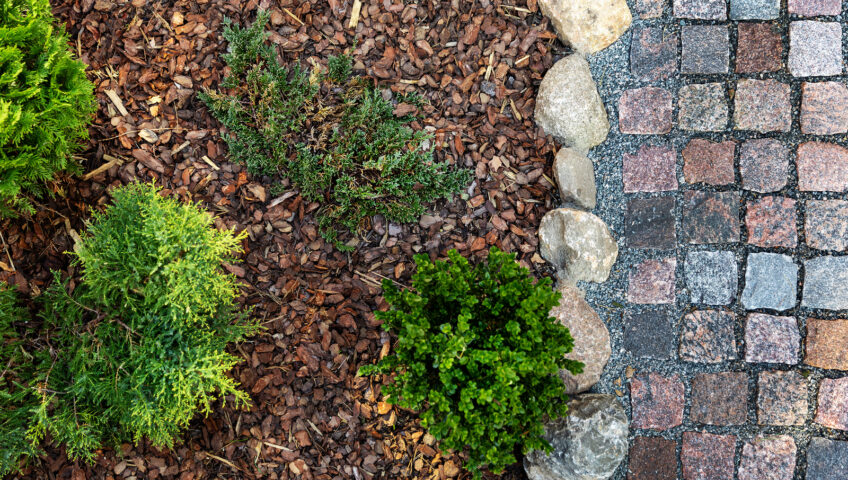When it comes to quick, easy, and inexpensive ways to spruce up your curb appeal and benefit your plants, you can’t beat mulching. Mulch comes in many different forms, from wood chips and pine needles, to recycled tires and river rocks. But did you know that mulching has many different benefits beyond just looking nice? Here are 7 different benefits that applying mulch can have for your yard.
- Controls Weeds
Using mulch helps to control weeds in your yard by taking up open spaces. The mulch acts as a barrier, preventing sunlight from reaching the ground and causing weed seeds to germinate. It is a great way to help prevent weeds in garden beds.
- Retains Moisture
Mulch helps your soil to retain moisture by absorbing water and limiting evaporation. This means that, during hot summer months or periods of drought, you will have to use less water to keep your plants healthy. This not only ensure happy plants, but also helps cut down on your water bill.
- Prevents Soil Erosion
Mulching not only helps to keep water trapped in the soil, it also prevents rain water from washing away your soil. Mulch helps prevent erosion creating a barrier on top of the solid that breaks the fall of the water, and lessens the force when the water impacts the ground.
- Maintains Soil Nutrients
Not only does mulch help keep water in the soil, it also helps to keep nutrients in the soil. In addition, if you choose an organic mulch such as wood chips or pine needles, as they slowly decompose they will release additional nutrients directly into your soil.
- Controls Pests
Using certain types of mulch, such as cedar bark, can deter certain pests due to the fact that the cedar bark has natural oils that act as insect repellent. To reap the full benefits, be sure to find a mulch that is very fragrant, as it will have the greatest effect on insects. Some mulches, however, can encourage insects to flock to your garden, and even your house if your mulch touches your home. Be sure to research which type of mulch will best suit your needs.
- Encourages Earthworms to Move In
Using organic material for mulching can encourage earthworms to occupy your garden soil. Earthworms like the damp, dark area underneath mulch, and they make a great addition to your garden because earthworms help improve soil structure and nutrient cycling.
- Polishes up Your Garden
Mulch can give a garden a finished look by filling in the empty spaces while being one of the easiest fillers to maintain. Grass, groundcovers, and other fillers may take extensive care, such as mowing and watering, as well as competing for resources with your garden plants. Mulch is easy to care for and never competes with your other plants.
We hope that this article has helped you to learn about the benefits of mulching in areas around your yard. If you aren’t certain which mulch is best for your individual needs, Liberty Lawn is here to help. We offer all kinds of yard services, including mulching, to keep your yard healthy and looking good all season long. Give us a call today to schedule a free consultation!


